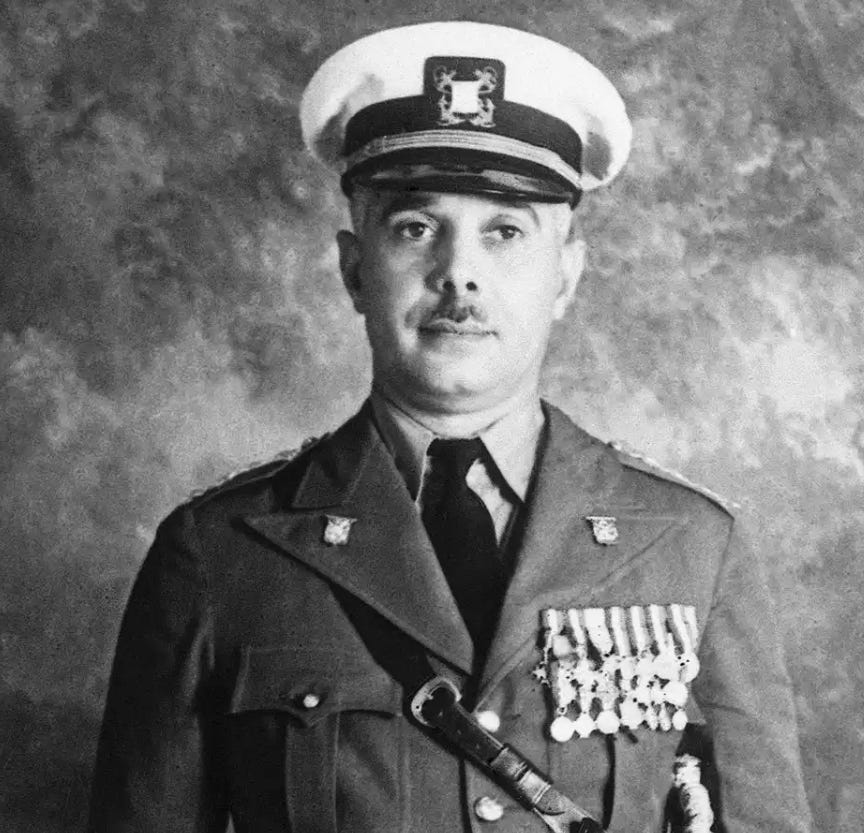"He who does not know how to deceive does not know how to rule."
Rafael Trujillo
Rafael Trujillo, born on October 24, 1891, was the dictator of the Dominican Republic who ruled the country with an iron fist for over three decades, from 1930 until his assassination in 1961. Trujillo's reign is one of the longest and most brutal dictatorships in Latin American history, marked by extreme repression, human rights abuses, and the cultivation of a pervasive cult of personality.
A quote that reflects the ruthless and authoritarian nature of Trujillo’s regime is: "He who does not know how to deceive does not know how to rule." This saying encapsulates the Machiavellian principles that Trujillo applied throughout his rule, where deception, manipulation, and ruthless tactics were seen as essential tools of governance.
Trujillo rose to power after a military coup in 1930 and quickly established a totalitarian state. He maintained his grip on power through a combination of fear, violence, and propaganda. His regime was characterized by the systematic elimination of political opponents, strict control over the media, and the establishment of a cult of personality that portrayed him as the savior of the Dominican Republic. Trujillo’s image was omnipresent in the country, with towns, landmarks, and even the capital city being renamed in his honor.
One of the most infamous events during his rule was the Parsley Massacre of 1937, where Trujillo ordered the massacre of thousands of Haitian immigrants living in the Dominican Republic. This brutal act was motivated by Trujillo's desire to "whiten" the population and assert Dominican sovereignty, and it highlighted the extreme lengths to which he would go to maintain his vision of the nation.
Despite his brutality, Trujillo also implemented infrastructure projects and modernized the economy, which earned him some support. However, these achievements were overshadowed by the widespread corruption, human rights abuses, and the extravagant wealth that Trujillo and his family amassed during his rule. He controlled every aspect of the country's political and economic life, ensuring that his family and close associates benefited immensely from their positions of power.
Trujillo's rule ended in 1961 when he was assassinated by a group of conspirators, many of whom had once been close to him. His death marked the beginning of a turbulent period in the Dominican Republic's history as the country struggled to transition to democracy after decades of dictatorship.
The legacy of Rafael Trujillo is a complex and painful chapter in the history of the Dominican Republic. His rule left deep scars on the nation's collective memory, and his use of deception and fear as tools of governance serves as a cautionary tale about the dangers of unchecked power and authoritarianism.


